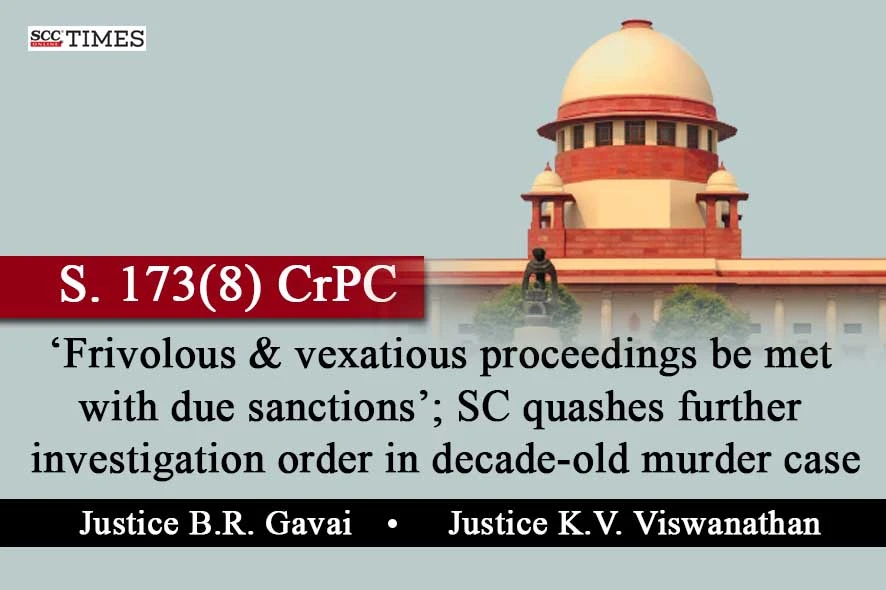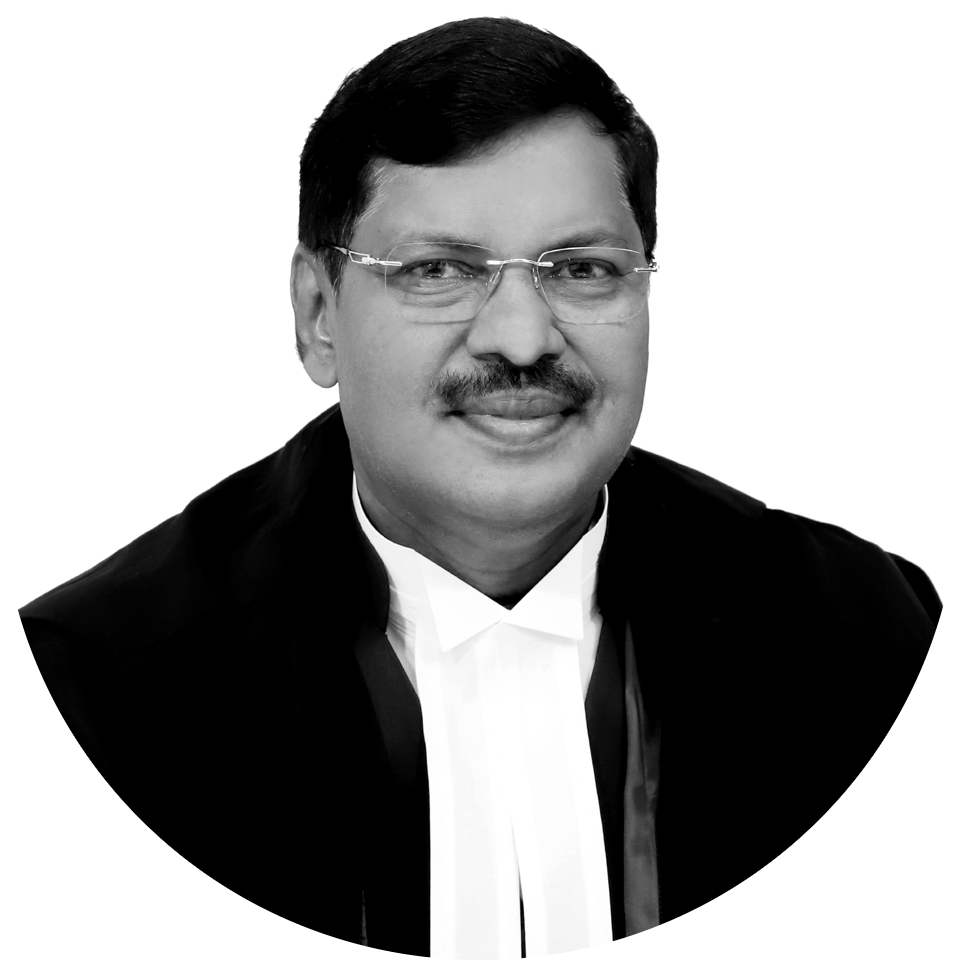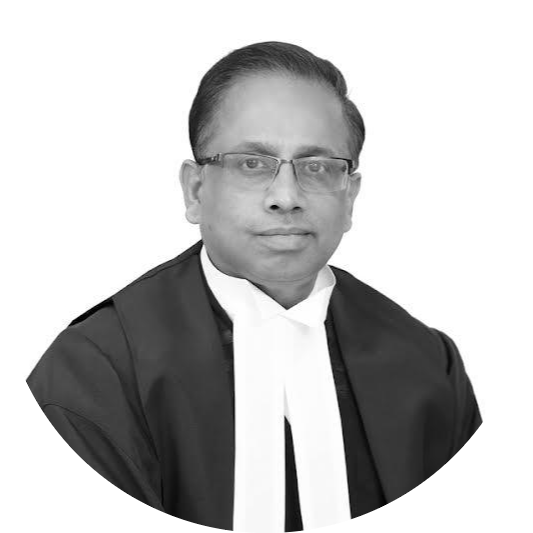Supreme Court: In a criminal appeal against a decision of the Madras High Court, wherein by a cryptic order, the application for further investigation in a murder case was allowed, the Division Bench of BR Gavai and KV Viswanathan*, JJ. observed that a distinction should be made between cases where there exist genuine grounds to hold up the proceedings and cases where such grounds do not exist, and termed the case as classic example of latter. Hence, allowing the appeal, the Court set aside the impugned decision. The Court stated that the impugned judgment of the High Court gave no valid justification for ordering a further investigation.
Background
On 31-03-2013, a First Information Report (FIR) was registered on the complaint given by PW-1 stating that when he along with the deceased were doing their morning walk around 5:00 AM, three persons with weapons hacked the deceased to death. Subsequently, a final report was filed setting up eight accused for trial, including the present appellant/ accused. PW-1 was examined at length. PW-1 was declared hostile and sought to be cross-examined by the prosecution. In the cross-examination, he denied the suggestion that he had told the Police that he saw the present appellant(A1) and A2 hacking the deceased and another co-accused stabbing the deceased with a spear.
PW-1 was recalled at the behest of accused A1 and A2 wherein he stated that he did not specifically state to the Police about A2 Ganapathy being present at the place of occurrence and that he had only said that three unidentified persons had attacked the deceased. The wife of the deceased at the stage of final arguments alleged that PW-1 had given false evidence; that the Investigating Officer had failed to enquire the proper eye-witnesses; that the direct eye-witnesses to the occurrence were not examined and that they deserve to be summoned.
The Trial Court dismissed the application filed under Section 311 of the CrPC, observing that though the power under Section 311 is available to the Court to reach a just decision, it cannot be exercised unless the facts and circumstances of the case make it apparent as otherwise it would result in causing serious prejudice to the accused resulting in miscarriage of justice. The High Court also dismissed the appeal against the Trial Court’s decision.
In January, 2020 the wife of the deceased filed an application before the Court of the Additional District and Sessions Judge with a prayer for directing the State to conduct further investigation or re-investigation by examining the related occurrence and eyewitnesses of the crime. The petition for further investigation was dismissed, holding that in her examination, the wife of the deceased did not speak about what she was now mentioning in the application.
In the impugned decision, the High Court allowed the criminal revision application, directing that on receipt of the additional chargesheet, the Trial Court to frame charges afresh and proceed with the trial and to dispose of the case as expeditiously as possible.
By an order dated 16-08-2022, the Court, while issuing notice, stayed the operation of the impugned order.
Analysis and Decision
The Court referred to Ram Lal Narang v. State (Delhi Administration) (1979) 2 SCC 322, wherein, it was laid down that when fresh materials come to light which would implicate persons not previously accused or absolve persons already accused or where it comes to the notice of the investigating agency that a person already accused of an offence has a good alibi, it may be the duty of the investigating agency to investigate the genuineness of the same and submit a report to the Court.
The Court said that, in the matter at hand, the wife of the deceased had not whispered anything new in her evidence, which was now averred in the application. There must be some reasonable basis which should trigger the application for further investigation so that the Court is able to arrive at a satisfaction that ends of justice require the ordering/permitting of further investigation.
Apropos, the power of the Magistrate to direct further investigation, the Court relied on Vinay Tyagi vs. Irshad Ali (2013) 5 SCC 762 and Devendra Nath Singh v. State of Bihar, (2023) 1 SCC 48 whereby it was categorically observed that, though the power to order further investigation is a significant power it has to be exercised sparingly and in exceptional cases and to achieve the ends of justice. Whether further investigation should or should not be ordered is within the discretion of the Magistrate and the said discretion is to be exercised on the facts of each case in accordance with law. This Court also held that in an appropriate case, where the High Court feels that the investigation is not in the proper direction and to do complete justice where the facts of the case so demand, the inherent powers under Section 482 Cr.P.C. could be exercised to direct further investigation or even reinvestigation.
Hence, the Court held that the direction for further investigation was unwarranted. The chargesheet under Section 173 of the CrPC was filed as early as 11-07-2013. The wife of the deceased was examined on 18-03-2017 and there was no whisper in her deposition for what she contended in the application for further investigation. The Court stated that there was nothing that had prevented her from deposing in the box about any failure of the investigating officer, to enquire the other witnesses. The Court also pointed out that period of about six years after the filing of the chargesheet. The Court pointed that when the application under Section 311 was filed, a period of about six years after the filing of the chargesheet had already passed.
“Any proceeding or application which prima facie lacks merit should not be instituted in a court. Pleadings/petitions with outrageous and ex facie unbelievable averments are made with no inhibition whatsoever. This is especially so in some family law proceedings, both civil and criminal. These misadventures directly impinge on the rule of law, because they add to the pendency and the consequential delay in the disposal of other cases which are crying for justice. It is time that such frivolous and vexatious proceedings are met with due sanctions in the form of exemplary costs to dissuade parties from resorting to such tactics.”
The Court held that the order for taking the additional charge sheet on record at this stage pursuant to the further investigation was not in accordance with the law and was contrary to the settled principles as laid down by this Court. The High Court had not recorded any reason and had not set out any legal principle, relevant and applicable to the facts.
“Denial of speedy and timely justice can be disastrous to rule of law in the long term. Even if the parties involved in a case themselves, with no valid justification attempt to delay the proceedings, the courts need to be vigilant and nip any such attempt in the bud instantly. The administration of justice feeds on the faith of the citizenry and nothing should be done to even remotely shake that faith and confidence.”
CASE DETAILS
|
Citation: Appellants : Respondents : |
Advocates who appeared in this case For Petitioner(s): For Respondent(s): |
CORAM :








